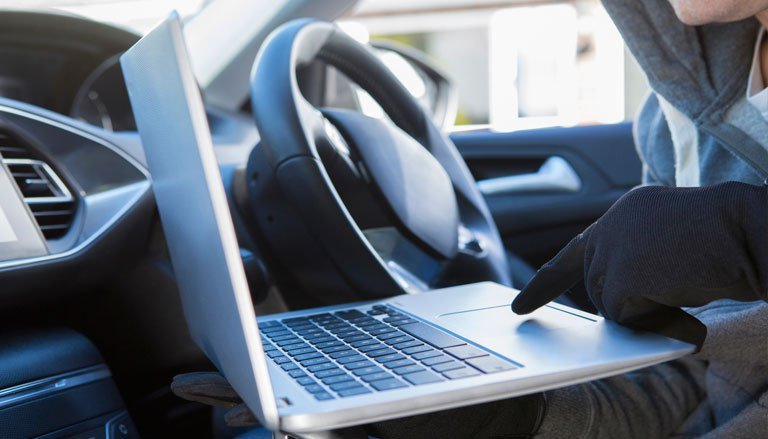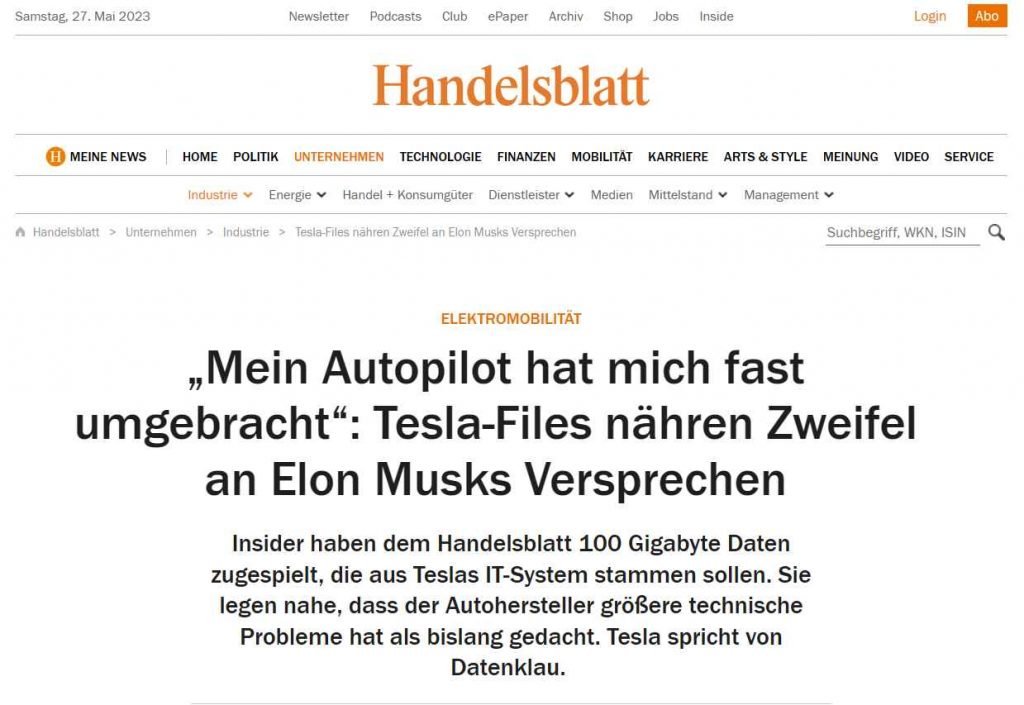The research that was published in the German daily Handelsblatt said that customers of Tesla Inc. lodged over 2,400 complaints about difficulties with self-acceleration and 1,500 complaints regarding issues with brakes between the years of 2015 and March 2022.
According to reports, a big data dump that was based on a whistleblower’s breach of internal Tesla papers suggests that problems with Tesla’s autonomous driving system may be considerably more frequent than authorities and the media have suggested. This was discovered after the whistleblower gained unauthorized access to internal Tesla documents.

According to information that was taken from Tesla’s information technology (IT) system, complaints against these Full Self Driving (FSD) capabilities originated from all over the globe, including the United States of America, Europe, and Asia.
Particularly, in an article titled “My autopilot almost killed me,” Handelsblatt reported receiving 100 terabytes of data and 23,000 files. Within those files were 3,000 entries highlighting consumers’ safety concerns and tales of more than 1,000 crashes.

The publisher included a note stating that the data includes the phone numbers of customers.
According to the hundreds of clients that Handelsblatt is claimed to have contacted, the fears were quite serious.
According to one man from Michigan, his Tesla “suddenly braked hard, as hard as you can imagine.” When I was ordered to fasten my seatbelt, the vehicle was on the verge of coming to a complete halt. I was then struck by a second car.
The files were shown to the Fraunhofer Institute for Secure Information Technology by Handelsblatt. The institute concluded that there is no reason to presume that “the data set does not come from IT systems belonging to or in the environment of Tesla.”
Employees are instructed that, unless lawyers are involved, they should not deliver written comments but rather should convey them “VERBALLY to the customer.” Unless attorneys are involved, written critiques should not be given.
The post quotes the instructions as saying, “Do not copy and paste the report below into an email, text message, or leave it in a voicemail to the customer,” and it is clear that this is a requirement.
An report featured a doctor from California who said that her Tesla accelerated on its own in the autumn of 2021 and smashed into two concrete pillars. She noted that the company never sent emails and that everything was always communicated verbally.
According to the attorneys for Tesla, the news organization is required to provide a copy of the data to Tesla, and all other copies of the data must be destroyed. The attorneys for Tesla also warned legal action “for the theft of confidential and personal data.”
According to reports, the alleged papers would undoubtedly be important to current wrongful death lawsuits made against Tesla. These claims assert that the company’s technology has significant safety faults. Additionally, they may compel local, state, and federal authorities to take action.
The state’s data protection officer, Dagmar Hartge, recognized the seriousness of the allegations and pointed out that, should the allegations prove to be accurate, the data breach would have significant repercussions on a worldwide scale. The situation has been sent to privacy advocates in the Netherlands so that additional investigation might be conducted.
“Tesla takes the protection of its proprietary and confidential information, as well as the privacy of its employees and customers, very seriously.” “We intend to initiate legal proceedings against this individual for his theft of Tesla’s confidential information and employees’ personal data,” Tesla stated in a response that was reported by the publication. The statement was made in reaction to the theft of sensitive information and personal data pertaining to Tesla employees.
The Chinese regulatory authorities have already started to take action. Approximately two weeks ago, Tesla was forced to provide an emergency software update for the majority of the automobiles it has sold in China as a direct result of problems with unexpected and sudden acceleration.
Since 2016, Musk has made many claims that his self-driving vehicles would be really autonomous, but he has not delivered on those claims.

Information security specialist, currently working as risk infrastructure specialist & investigator.
15 years of experience in risk and control process, security audit support, business continuity design and support, workgroup management and information security standards.











